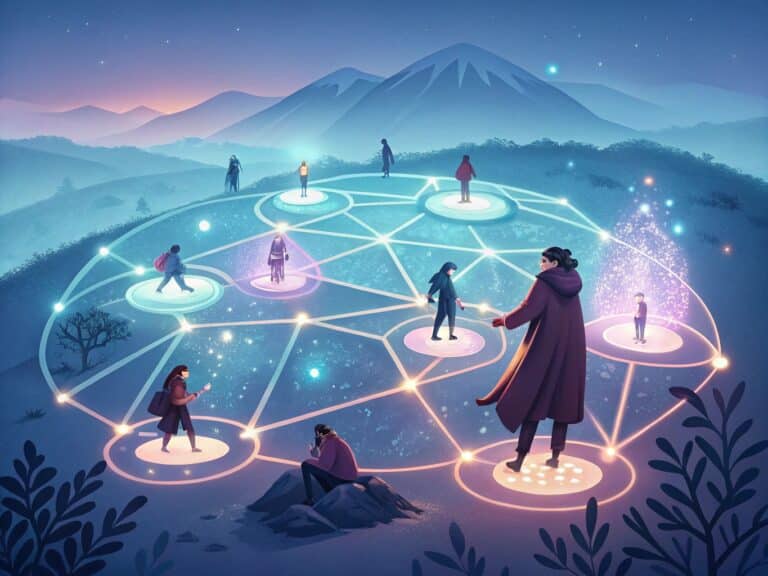Video has become the most powerful medium for digital communication. From social media campaigns to educational tutorials, businesses and creators use video to connect with their audiences on a deeper level. But video content creation is evolving rapidly, thanks to the integration of artificial intelligence (AI). One of the most transformative advancements is auto-voice narrated visual storytelling, powered by tools like an AI voice generator.
This shift not only changes how videos are produced but also redefines accessibility, personalization, and scalability for content creators. In this blog, we’ll explore the future of video content creation, the role of auto-voice narration, and how businesses can leverage this technology to stay ahead of the curve.
Why Video Content Rules the Digital Space
Video isn’t just another content format—it’s the most engaging form of communication. Studies show that viewers retain 95% of a video’s message compared to just 10% when reading text. Platforms like YouTube, TikTok, and Instagram have further fueled this dominance, making video the default choice for entertainment, education, and marketing.
However, traditional video production involves high costs, long timelines, and the need for voice-over artists or narrators. For startups, educators, or small creators, these challenges can limit the ability to produce consistent, high-quality content. This is where AI-driven auto-voice narration enters the picture.
What Is Auto-Voice Narrated Visual Storytelling?
Auto-voice narrated storytelling combines two elements:
- Visual Content – Images, animations, infographics, and videos.
- AI Voice Narration – Natural-sounding voiceovers generated by AI.
Instead of hiring professional voice actors or recording your own narration, creators can use an AI voice generator to produce realistic voiceovers in multiple languages, accents, and tones. The narration syncs seamlessly with visuals, creating a compelling story without the need for extensive manual work.
This approach not only saves time and costs but also democratizes video creation by allowing anyone, regardless of technical skill, to tell stories effectively.
The Role of AI Voice Generators in Visual Storytelling
An AI voice generator plays a pivotal role in transforming static visuals into immersive storytelling experiences. Here’s how it adds value:
- Scalability: Businesses can produce hundreds of videos with consistent narration quality, without depending on human voice-over artists.
- Customization: Creators can choose voices that match their brand’s personality—professional, friendly, authoritative, or casual.
- Localization: AI-generated voices can narrate in multiple languages, making global reach much easier.
- Accessibility: Adding narration improves accessibility for visually impaired audiences, ensuring inclusivity.
By pairing visuals with AI narration, brands can deliver engaging content faster and at scale.
The Benefits of Auto-Voice Narrated Storytelling
Let’s look at why auto-voice narration is shaping the future of video content creation:
1. Cost-Effective Production
Hiring professional voice talent can be expensive. Auto-voice narration significantly reduces costs while maintaining professional quality.
2. Faster Turnaround Times
With AI voiceovers, creators can generate narration in minutes. This speed enables rapid content publishing, perfect for fast-paced digital campaigns.
3. Consistent Quality
Unlike human narrators who may vary in tone or energy, AI-generated voices provide uniform quality across all videos.
4. Global Reach
AI voice generators support multiple languages, allowing creators to repurpose the same video for international markets.
5. Creative Freedom
Creators can experiment with different tones, accents, and pacing, tailoring each video to their target audience.
Real-World Applications of Auto-Voice Narration
Auto-voice narrated visual storytelling isn’t just theoretical. Here are some industries already embracing it:
- Education & E-Learning: Teachers and institutions use AI narration to create multilingual video lessons, making education more accessible worldwide.
- Corporate Training: Businesses produce training modules with consistent, professional voiceovers, saving time and resources.
- Marketing Campaigns: Brands leverage AI narration to create explainer videos, product demos, and social media ads faster.
- Content Creators & Influencers: YouTubers and TikTok creators use AI voices to scale their video production without burning out.
- Accessibility Solutions: Organizations enhance inclusivity by using narration to make visual content accessible to people with disabilities.
The Future of Video Content Creation
The future of video lies in automation and personalization. As AI technology advances, we can expect:
- Real-Time Narration: AI will soon narrate live streams and presentations instantly, removing the need for human commentary.
- Emotionally Adaptive Voices: Future AI voices will detect audience emotions and adjust tone to enhance engagement.
- Hyper-Personalized Content: Imagine personalized ads or learning modules where the narration adapts to the viewer’s preferences.
- Integration with AR & VR: Auto-voice narration will bring immersive experiences to life in virtual and augmented reality.
This future points toward a more dynamic, inclusive, and efficient content ecosystem, where storytelling becomes effortless.
How Businesses Can Leverage Auto-Voice Narration Today
To prepare for this shift, businesses and creators can start adopting AI voice generator tools in their video strategies. Here’s how to get started:
- Identify Your Content Needs – Do you need explainer videos, tutorials, or ads?
- Choose the Right AI Voice Generator – Look for tools offering diverse voice options, multi-language support, and customization.
- Experiment with Tones & Styles – Test different voices to match your brand’s messaging.
- Localize Your Content – Use AI narration to reach global audiences with minimal effort.
- Focus on Storytelling – Remember, narration is just one part; combine it with visuals and a clear storyline to maximize impact.
Conclusion
Auto-voice narrated visual storytelling is not just a trend—it’s the next big leap in video content creation. By combining engaging visuals with AI-generated narration, creators can produce high-quality, scalable, and inclusive content that resonates with audiences worldwide.
As businesses compete for attention in an increasingly saturated digital landscape, adopting tools like an AI voice generator will help them stand out, deliver personalized experiences, and future-proof their video strategies.
The future of video is here—and it speaks with the voice of AI.

